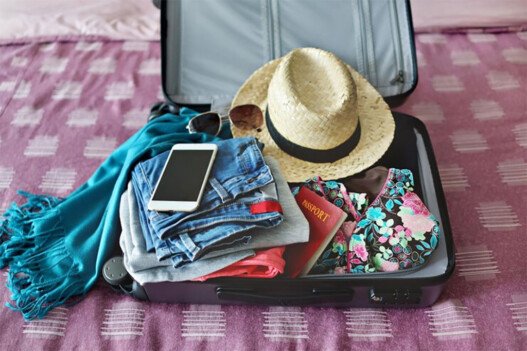Bali beaches, rice terraces, and vibrant culture. For many travelers, it’s a dream destination, offering breathtaking views, delicious food, and unforgettable experiences. But with all the charm comes the challenge of managing your travel budget wisely. Overspending is a common trap, especially when you’re caught up in the excitement of exploring this tropical paradise.
If you want to enjoy Bali without draining your bank account, you need to be smart about your money. Here are 6 budgeting secrets every Bali traveler needs to know before packing their bags. Ready to explore Bali and save some cash? Let’s dive in! 🚀
1. Plan Your Trip During the Off-Season ⏳✈️
One of the best ways to stretch your travel budget in Bali is by timing your visit wisely. Bali’s peak season falls between July and August and during the December–January holidays. Prices for flights, accommodations, and tours skyrocket during these months because Bali becomes a hotspot for tourists worldwide.
Secret Tip: Visit during the shoulder or off-seasons — typically from April to June and September to November. During these months, you’ll find significantly cheaper flights and hotel rates, plus fewer crowds. The weather is still pleasant, and you get a more relaxed vibe, ideal for those looking to unwind.
🏖️ Pro Tip: Use flight price comparison tools and set alerts for deals. Booking flights and hotels 2-3 months in advance during the off-season often yields the best prices.
2. Choose Local Accommodations Over Luxury Resorts 🏡 vs. 🏨
Bali has accommodation options ranging from luxurious five-star resorts to budget-friendly homestays and guesthouses. While the thought of staying in a beachfront resort with a private pool sounds appealing, it’s also expensive and can eat up a huge chunk of your budget.
If you want to save money without sacrificing comfort, consider staying at:
- Homestays: These family-run guesthouses provide a more authentic Balinese experience and often include breakfast.
- Hostels: Great for solo travelers or backpackers looking to meet people.
- Airbnb rentals: Entire homes or private rooms for longer stays often come cheaper than hotels.
Local accommodations often come with perks like free Wi-Fi, kitchen access (helpful for saving on meals), and personalized tips from hosts about cheap local eateries and hidden gems.
🌺 Balinese Hospitality Bonus: Staying with locals or smaller guesthouses often means you’ll get insider recommendations, discounts on tours, and even invitations to cultural events!
3. Eat Like a Local — Not Like a Tourist 🍛🍜
Food is a huge part of the Bali experience, and luckily, Bali is a food lover’s paradise for all budgets. But beware: eating at touristy cafes and restaurants can quickly blow your budget.
Instead, eat where the locals eat:
- Warungs: Small family-owned eateries serving traditional Indonesian dishes at dirt-cheap prices.
- Street Food Stalls: Grab a satay skewer, nasi goreng (fried rice), or mie goreng (fried noodles) for just a few dollars.
- Markets: Fresh fruit, snacks, and local delicacies.
Typical prices: A meal at a warung can cost as little as $1–$3, compared to $10–$20 at westernized cafes.
💡 Healthy and Budget-Friendly: Stick to local fruits, veggies, and seafood. Avoid imported products or international chains that jack up prices.
4. Use Scooters or Public Transport Instead of Taxis 🛵🚌
Transportation in Bali can be surprisingly costly if you rely on taxis or private drivers. Although taxis are convenient, they add up fast — especially if you’re traveling long distances or getting caught in traffic.
Best budget transport options:
- Rent a scooter: For about $5–$7 per day, renting a scooter gives you freedom, flexibility, and saves you a lot of money. Just make sure to wear a helmet and have an international driver’s license.
- Local buses: There are a few bus options connecting major towns, but they can be limited in routes and schedules.
- Ride-hailing apps: Grab and Gojek work similarly to Uber and offer cheaper rides than traditional taxis.
Caution: Always negotiate upfront if you’re hiring a driver for the day or use apps to avoid overpaying.
🛡️ Safety Note: Drive cautiously on Bali’s often narrow and busy roads. Accidents happen when you’re unfamiliar with local driving habits.
5. Book Tours and Activities Independently 🎨🏄♂️
Bali is famous for its exciting activities: snorkeling, surfing, temple tours, jungle trekking, yoga retreats, and more. But booking through your hotel or tour operators targeting tourists can be pricey.
How to save:
- Book directly with local operators.
- Use online platforms that offer discounts.
- Compare prices by asking around in person once you arrive.
Many local guides will offer you lower prices if you book directly with them. Plus, independent bookings allow you to customize your experiences and avoid group tours crowded with other tourists.
🎟️ Example: Surf lessons, which can cost $50+ through agencies, might be available for half the price if booked directly.
6. Limit Shopping and Souvenir Spending 🎁🛍️
Bali’s markets and shops are full of beautiful handicrafts, jewelry, clothing, and art. It’s tempting to bring home souvenirs for everyone you know. But overindulging in shopping can quickly bust your budget.
Budget tips for shopping:
- Set a souvenir budget before you arrive.
- Bargain respectfully — haggling is expected but keep it friendly.
- Buy fewer, higher-quality items rather than many cheap ones.
- Visit local markets rather than tourist shops for better prices.
If you want souvenirs without spending a fortune, focus on small items like postcards, handmade jewelry, or local spices and coffee.
🎨 Cultural Souvenir Idea: Consider buying items that support local artisans or fair trade cooperatives — that way your money contributes to the community.
Bonus Tips for Budget-Savvy Bali Travelers 💡
- Use refillable water bottles: Bali has many places where you can refill your bottle with filtered water, saving money and reducing plastic waste.
- Avoid currency exchange scams: Use reputable money changers or withdraw local currency from ATMs.
- Plan some free activities: Bali has many beautiful beaches, hiking spots, and temples that are free or have minimal entry fees.
- Travel with a group: Sharing accommodation and transport costs with friends can lower expenses dramatically.
- Keep an emergency fund: Always have extra cash set aside for unexpected costs like medical care or emergencies.
Final Thoughts 🌟
Traveling to Bali doesn’t have to be expensive. With a bit of planning, smart choices, and embracing the local lifestyle, you can enjoy this incredible island without overspending. Remember, the best experiences come from immersing yourself in the culture, nature, and people — not from splurging on luxuries.
By following these 6 budgeting secrets, you’ll return home with unforgettable memories, beautiful photos, and a healthy bank balance. Bali awaits you — and your wallet will thank you!









